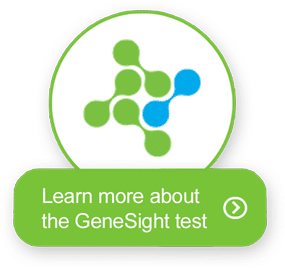 Women & Depression
Women & Depression
According to numerous sources, women are twice as likely as men to be diagnosed with depression. This difference is incredibly persistent—you’ll find the 2-to-1 ratio remains across races, ethnicities, socio-economic statuses, and even whether you live in the first or the third world.
Some attribute this difference to the fact that women are more likely to seek treatment to manage their depressive symptoms than men are. Others say that perhaps women are just more likely to look inward or be adversely affected by stress, increasing their likelihood of depression. But more and more, researchers are learning that hormones, particularly the fluctuations of hormones involved in the routine monthly menstrual cycle, also play an important role in the development of depression.
Hormones & Depression
“Certainly, there’s still a lot more we don’t understand about how hormones affect the brain and mood. But we are learning that the brain orchestrates hormonal changes and then in turn the hormones act upon the brain, including the parts of the brain underlying emotional behavior,” says David Silbersweig, M.D., a psychiatrist at Brigham and Women’s Hospital. “And the hormonal changes women experience over the month during their cycle influences those brain systems that mediate emotion and mood.”
While the exact neurobiological how’s and why’s are still being extensively studied, researchers are learning that women’s moods can be negatively affected by hormone changes—at puberty, at menopause, and even monthly on the days leading up to a woman’s menstrual period.
Premenstrual Dysphoric Disorder

“This is much more than usual premenstrual syndrome (PMS) symptomology,” says Silbersweig. “The symptoms are quite severe and really interfere with work and relationships.”
So severe, in fact, that the fifth edition of the Diagnostic and Statistical Manual of Mental Disorders (DSM-5), the manual published by the American Psychiatric Association which lists and classifies all mental disorders, added PMDD to its list of mood disorders. While approximately 85 percent of women have at least one uncomfortable PMS symptom, PMDD will only be diagnosed if you are experiencing at least five symptoms that may include headaches, frequent crying, mood swings, panic attacks, irritability, anxiety, and sleep difficulties.
If you are concerned that your hormones may be affecting your mood and leading to depressive symptoms, or if you are experiencing regular, severe monthly symptoms that may lead you to believe you have PMDD, seek out a qualified healthcare provider. Such symptoms can be effectively managed with the right combination of medication and therapeutic interventions.
Our articles are for informational purposes only and are reviewed by our Medical Information team, which includes PharmDs, MDs, and PhDs. Do not make any changes to your current medications or dosing without consulting your healthcare provider.
The GeneSight test must be ordered by and used only in consultation with a healthcare provider who can prescribe medications. As with all genetic tests, the GeneSight test results have limitations and do not constitute medical advice. The test results are designed to be just one part of a larger, complete patient assessment, which would include proper diagnosis and consideration of your medical history, other medications you may be taking, your family history, and other factors.
If you are a healthcare provider and interested in learning more about the GeneSight test, please contact us at 855.891.9415. If you are a patient, please talk with your doctor to see if the GeneSight test may be helpful.


 Women & Depression
Women & Depression


